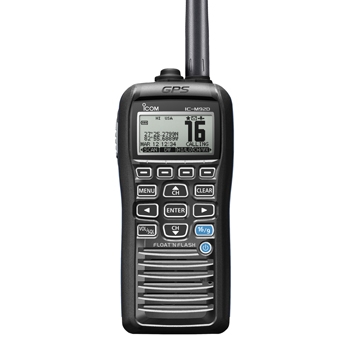GPS Units - Accessories
Autopilots - Marine
Cameras
Chart Plotters
Communications
Dash Cameras
EPIRBs & PLBs
Fitness, Sports & Golf
Fishfinders
Garmin Fitness
GPS-Fishfinders
GPS-GMRS Radios
Maps & Software
Hiking & Handheld GPS
Wearables
Laptop & Tablet GPS
Marine Electronics
Motorcycle Units
Network Systems
Off Road GPS
Radars
Safety Equipment
Starlink Mounts
Stereos & Speakers
Top Choice Products
Tracking Devices
Trolling Motors
Truck & RV GPS
VHF Radios
Accessories
Garmin Accessories
Marine Accessories
Transducers
Actisense
B&G
BilgeBuddy
C-Map Charts
CMOR Charts
Flir Thermal Imaging
Fujinon Marine Binoculars
Furuno Marine Electronics
Fusion Stereos
Garmin GPS
Icom Marine Radios
JL Audio
KVH Satellite TV
Lowrance Electronics
Lumishore LED Lights
Magellan GPS Systems
Navionics Charts
Ocean Signal
Pelican Lights
Poly Planar Stereos
Raymarine Electronics
Scanstrut
Seaview Mounts
Shakespeare
Simrad Marine
Sionyx
Si-Tex Marine Electronics
Standard Horizon
Superior Life Saving Life Rafts
USGlobalSat
Veratron
Vesper Marine
Handheld Marine Radios: How Many Watts Do I Need?
Water activities and spending time on the water is one of the great pleasures in life. Safety and the ability to communicate with others ensures your great day doesn’t become your worst. Be it on the high seas or tubing down your local river, a handheld marine radio is an effective way to stay in touch.
The Importance of a Marine Radio
Having a marine radio while on the water gives you a line of open communication, provides dedicated channels for direct contact with the U.S. Coast Guard, and furnishes you with current weather updates. A marine radio allows you to communicate for miles with anyone else who also has a radio. Even if you are unable to reach the Coast Guard, you can contact other boaters within your reception range, and they can then send the information to the proper authorities.
Why a Handheld Marine Radio?
The common form of maritime communications uses very high frequency (VHF) two-way radios. VHF marine radios are monitored 24 hours a day by the Cost Guard, and are essential in emergency situations. Boaters often mount radios with the legal limit of 25 watts and, depending on the height of the antenna, can reach communication distances as far as 60 miles or more. Everyone on the water should have a marine radio, however not everyone needs that much power while enjoying water activities.
Things to Consider When Choosing How Many Watts You Need
1) Line-of-sight
As with any two-way radio, marine VHF radios work off the line-of-sight principle and can only send signals in a straight line. The signal doesn’t bend with the curvature of the earth, and cannot travel around or through obstacles. Anything within the line-of-sight will interfere with your reception. Handheld marine radios have short antennas, and depending on how far away you are from a taller antenna, the watts do all the work.
2) Terrain
Because line-of-sight interference is a problem, you will need to consider the terrain around you while on the water in your decision of how many watts your handheld radio needs. No matter how many watts your radio has, your reception will be affected by your surroundings. You will have a better reception distance on a larger body of open water than you will on a river lined with trees and heavy foliage. No matter how vast the body of water, the curvature of the earth is a line-of-sight issue. Your reception does not curve and will continue in a straight line into space.
3) Weather
Weather conditions can impede your reception. Just like with the terrain, if you can see it, it can block your radio reception. Fog, heavy rain, and snow can prevent you from communicating with others. The handheld marine radio is waterproof and protected from damage from moisture and the corrosive effects of sea water.
4) Power Supply
Handheld marine radios rely on AA or AAA batteries. How many watts you have affects the life of your batteries: the higher the wattage, the faster the batteries are drained. No matter how many watts you choose, bringing extra batteries is always a good idea.
Reception Coverage: How Many Watts do You Need?
Determining how far you need your reception to reach will help you decide on how many watts you want for your handheld marine radio. The power of the radio is identified in watts. The wattage plays an important role in how far your reception travels. Higher wattage means you have a farther reception range than lower wattage. A radio with 1 watt has the capacity to reach a few hundred yards, and is mostly for harbor use, to communicate with others on your boat, or water sports like kayaking on a small body of water. The 5 watt radio can reach up to 12 miles or more. Some handheld radios have 6 watts which can reach up to 20 miles in the right conditions.
Having a radio with you while participating in water sports will help to keep you safe. A handheld radio can supplement your existing mounted marine radio as a backup for communications. The portable, waterproof marine handheld radio is a handy way to communicate with the crewmen on your boat, keeping in touch with other vessels in your signal range, and can save your life in the event of an accident. Marine radios are legally for water use only; however, discussions are ongoing to allow you to communicate with your boat while you’re on land.













